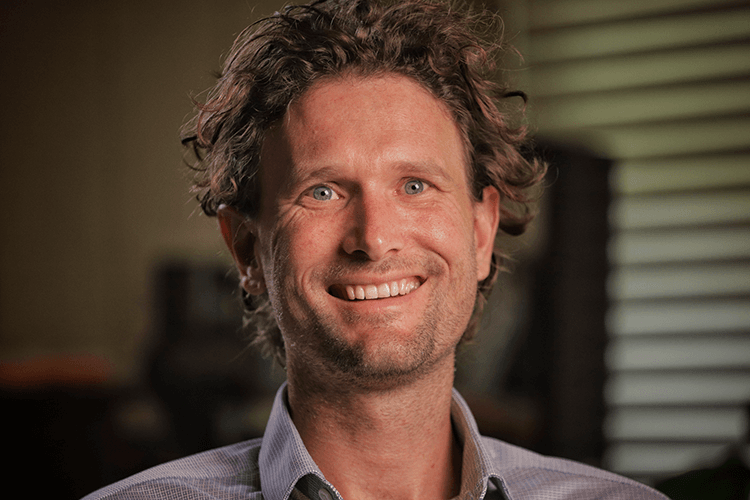Summary
Today I’m talking with Dr Cameron Murray. Cameron is a father of two currently living in Brisbane and holds a PhD in Economics from the University of Sydney. You may have seen Cameron in a collection of print media outlets and in TV programs such as Q&A on the ABC. This is a big episode today because Cameron has such a breadth of knowledge across so many areas that affect our ability to retiree early. He has one of the most interesting and original takes on our Super system too which I think a lot of early retirees, such as myself, will be interested in hearing.
Some of the topics we cover in today’s episode are:
- Why Australia should scrap Superannuation since the aged pension is a superior system that costs less and delivers more (00:11:20)
- Housing policies and what changes need to be made to help affordability (00:52:46)
- Money creation and its role in inflation (00:58:27)
- Political corruption and what it costs Australians (01:25:52)
- How to become a better economist (01:31:55)
Links
- Website – Fresh Economic Thinking
- Report – Scrap Superannuation
- Book – Game Of Mates: How favours bleed the nation
- Twitter – @DrCameronMurray
- Substack – Fresh Economic Thinking








Wow, what a great discussion. I’m not sure how people would take being taxed a pension premium. If we could cut the talent glut in the super industry and divert them into more productive careers like teaching or nursing and reduce the associated costs of administration that would probably be a very good thing.
Only just got around to listening to this podcast – fascinating. I have always thought Super was a great concept thinking along the lines of forcing people to save – this offered such a different perspective. Would love to hear more detail from cameron on the alternative as liked that his perspective was not just let people sink like other “experts” who suggest getting rid of super. Please have him back for another podcast. Looking at Singapore housing model was also excellant – I recently visited Singapore & came back thinking there is a lesson there for us.
I am very late on this as well. I like the idea of letting people use their Super for housing but I am not so sure the Singapore model would work because 90% of their residential housing market is tightly regulated and subsidized. It would have to completely and radically change the construction industry.
G’day Matt,
Wow !! …Brilliant Podcast …the best to date …and you have had some beauties!!
Scrap Super , bring on the Singapore housing model and make Australians aware that corruption and rorts are thriving in the land of fair go and complacency.
Cameron really brought home the Greed , stupidity (not clever), corruption and inequality that is Australia 2022.
Brilliant!!! …take care 👍
Cheers Jim, I’m glad you liked it 🙂
Great episode, with some interesting ideas and perspectives. One of your best!
Another great, thought provoking ep. Cameron is certainly not your typical economist! One thing I’m not convinced about though is Cameron’s claim that super isn’t working because it hasn’t materially reduced the proportion of retirees receiving full or part aged pension. It hasn’t yet but surely that’s only because the first generation of workers to have a full career of super accumulation at a decent rate hasn’t reached the typical retirement age yet.
Good point Steve. I guess time will tell.
It has something to do with the fact that superannuation is also a relatively young system. So the older generation who are now in pension stage may not have had the benefits of accumulating their super from early age. In any case, I agree there’s plenty of things Cameron said that I’d disagree with too e.g. saying super can be spent just like you spend your cash outside super before pension age, which is clearly inaccurate.
Hello there. That was the first time listening to your podcast – fantastic information. You host very well, letting the guest speak but following up with pertinent questions. Interesting take on Super. Was mildly surprised how inefficient the system is. Not so much that it is inefficient, but the level of that inefficiency. Keep up the good work.
Thanks for the feedback Kay-Suelle and I’m glad you enjoy our conversation 🙂
I found the initial conversation on super informative but theh longer it went on the nore concerned I was about thye idea of getting rid of superannuation for these reasons:
It ignores human beaviour. People need a ‘nudge’ on many things to look after themselves e.g. seat belts, drink driving, going to school and so son. I would like you to interviewa behavioral scientist on this pint.
How can a 30 year old today ust a government in 40 years time to llok after them in retirement.
In self-managed super there is a ‘sole purpose’ test i.e to provide a retirment benefit for teh member.
Income in superannuation funds comes form dividends, interest and distributions and some capital gains.
No mention of what the age pension amount should be in a ‘non super regime’.
What would the tax bands be in the ‘non super regime’?
Many people are financially illiterate – what would be his plan to educate people about money and retirement and over what period?
I accept that under the term “pure economic way” that there may bey be better use of capital. I wonder how many economists practice economics in their own lives e.g. do they all rent houses and free up capital for betteror more efficient economic use?
The segment on home owneshop was excellent and took into account human emotional factors
Thanks for the feedback Bryan 🙂
Most enjoyable discussion. Take away the individuals and, for me, it was like listening to Capitalism and Socialism sitting down for a friendly chat. The short discussion on Paul Keating was amusing and demonstrates some policies are effectively trial-and-error. It’s pretty normal to get things wrong before we get them right but it’s the admission and change which are the pain points.
You have a great relaxed and down-to-earth interview style. I’m learning so much from your podcasts so thanks a million.
Thanks a lot Dan.
I work hard on my interview skills and it’s nice when people give positive feedback.
Not topics that would normally spark my interest but this was one of your best podcasts yet. It was fascinating. I really hope you get Dr Cameron on again in the future. Great content
Thanks Murray 🙂
I’ll have to reach out to him again.
I’m 30 minutes into this podcast for the first time and I can’t say I agree with the super ideas so far.
Let’s say you take the self Insured route. People who can afford to save won’t buy into the insurance meaning the pool of money is not large enough to fund those who do buy in, because all or most who buy in will need more than they put in.
This strikes me as being overly simplistic economic thinking. It would put all retires on the same pension amount no matter how hard or effectively they have worked during their life. Can you see people being happy with that? Also, there was not mention of how the new system would actually look and then no discussion of the various ways that people will inevitably find to game the system. Seems to be pie in the sky thinking